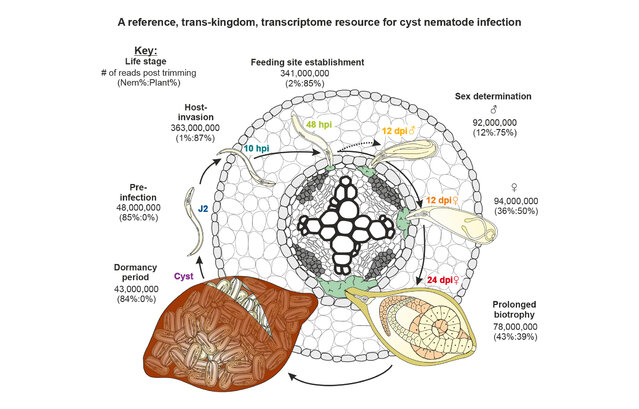
The research of Dr Sławomir Janakowski and Dr Mirosław Sobczak from the Department of Botany of the Institute of Biology at the Warsaw University of Life Sciences (SGGW) in Warsaw will ease to breed crop varieties that are resistant or tolerant to infestation by parasitic nematodes.
It is estimated that, worldwide, annual crop production losses caused by parasitic nematodes amount to up to 25% of crop yield and are valued at more than 80 billion US dollars. Those losses are caused mainly by obligate biotrophic sedentary cyst nematodes, a group of parasites that live and feed in the root tissues of host/host plants, which are hard to control.
The Polish researchers co-authored a paper in Nature Communications, in which they present an innovative approach on how to protect plants infested by parasitic nematodes and focus on new aspects of the biotrophic interaction between plant and parasite resulting from the analysis of metabolic pathways that are incomplete in the parasite but are complemented by host metabolism.
Read more:









